Specific English. Грамматические трудности перевода - [33]
30. They had a «don’t care» appearance that James, to whom risk was the most intolerable thing in life, did not appreciate. They all laughed and teased her about her millionaire friend.
II. Переведите на русский язык, обращая внимание на перевод определений, оканчивающихся на -ed.
1. The shop was a popular greengrocer and fruiterer’s, an array of goods set out in the open air and plainly ticketed with their names and prices. 2. He crossed the carpeted floor. 3. The Treasury, the Presidencia, a dentist’s, the prison – a low white colonnaded building, and then the steep street down – whichever way you went you came ultimately to water and to river. 4. He began to pray with his brandied tongue. 5. The bar owner served the liquor to customers, paying Herbie half the going price of regularly bottled supplies. 6. Meyerheim has a fine gallery on the moneyed side of the Seine and he has an international reputation. 7. Joseph put his gloved fingers to his forehead. 8. The dark downward steps, the ordure against the unwindowed wall, the starving faces. 9. He knew that the tall ribboned officer was the Chief of Police. 10. He lost himself deeply in this fantasy, and did not awaken from it till he found himself carrying the bottles and tins into his still unservanted house. 11. The two, hatted and gloved, seemed to trot with a conscious demureness. 12. Goggled, helmeted and indomitable Robert Redford plays the daredevil pilot. 13. That kind of thing is a parented responsibility, and I’m going to allocate ninety-five per cent of responsibility for spoilt children to parents.
III. Преобразуйте выделенные слова в прилагательные на -ed. Переведите предложения на русский язык.
1. Christine braked and, as the car stopped, a traffic officer in uniform walked forward. 2. His hands with gloves on them encountered a small pile of coins. 3. He stepped into the corridor covered with a carpet. 4. It was a long room with a window at each end, but with heavy curtains. 5. The room had stand-up ledges running along the walls with windows. 6. It was warm among the sacks, in the dark, in the windowless shed. 7. She blinked around and singled out the boy wearing spectacles. 8. In the nineteenth century it had been acquired by a linen manufacturer of vast wealth from County Tyrone, who had given it its present name and a pair of lateral towers with battlements.
IV. Переведите на русский язык следующие предложения со сложнопроизводными прилагательными.
А. 1. It was the best-financed reactionary campaign in history. 2. After a few months the newly-organised union shop went out on strike. 3. They attended the giant meeting of joint action groups which filled Yankee Stadium in 1924 in an industry-wide work stoppage. 4. Your soil was drenched with the blood of the Araucans in their century-long struggle, an unequaled epic of resistance to Spanish conquest. 5. Development of nuclear energy in the United States is hampered by monopoly profiteering, marred by profit-greedy companies which economise on safety precautions. 6. «Our society has become information rich and action poor,«he said. 7. Columbia is the second-biggest coffee exporting country in the world. 8. The Soviet airline Aeroflot said II-62 jetlines will make twice-weekly flights to the Portuguese capital. 9. A recently-published study called «Women in Top Jobs» examines why this should be so.
Б. 1. The rejection of the Senate of a labour-supported proposal on so-called welfare «reform» was defeated 52-34. 2. So it was, with misgivings yet relentlessly, that he wished to distance himself from her more accusing image, from the cat-hugging Fanny of the patience-cards and the swallows, the last really humanly-present Fanny that he had known. 3. He had also added an ornate grass porch over the steps, a vast mushroom-shaped conservatory, and a red-brick kitchen annexe. 4. Within the house always seemed to Hugh to be both dark and damp, centred around the cold stone-flagged still-room, full of rain-soaked overcoats and rows of muddy Wellingtons. 5. The National Union of Public Employees’ leader said he was «extremely disturbed» to see that a union-sponsored Labour MP, Mr Ted Leadbitter, had also opposed the visit. 6. Emma had contrived to give the room an Edwardian look, and appeared in the midst of it, her voluminous nylon dress seeming like transparent muslin, her silver-topped walking-stick half lost in the folds, Edwardian herself. 7. The nearest he could come to his satisfaction was the guilty enjoyment of Lindsay’s dry-lipped kisses while Emma’s stick tapped slowly across the next room. 8. There is no inflation because the country has a centrally-planned, scientific socialist economy. 9. The New York State Department of Labor has been charged with discrimination against Spanish-speaking unemployment benefit claimants. The Labour-controlled Castle Point District Council was meeting in the small hours of yesterday when a message arrived from Occidental Oil Company’s Los Angeles office. The Council has been supporting a bitterly fought campaign by the Castle Point Refinery (нефтеочистительный завод) Resistance Group, which three weeks ago moved the pickets to an Italian-financed refinery which has been the subject of an inquiry. 12. From the reaction in the labour press, it appears that even some of the most conservative sections of the labor movement have become more appreciative of the peace issue, after seeing its influence in the election and in the victory of labor-endorsed candidates from the President down. 13. The voice that came back, welling up from the bottom of the stairs, was silly-young and self-amused. 14. On my way home 1 noticed a cab-driver crowd gathered in front of P. J. Clark’s saloon, apparently attracted there by a happy group of whiskey-eyed army officers. 15. As April approached May, the open-windowed, warm spring nights were lurid with the party sounds, the loud-playing phonograph and martini laughter that emanated from Apartment 2. 16. «Hello, Doc,«she repeated happily, as he lifted her off her feet in a rib-crushing grip. 17. Usually Riley wore a tense, trigger-tempered expression; but now he seemed relaxed. 18. Nodding dreamily, he gazed away from us, above us, his acornlike eyes scanning the sky-fringed, breeze-fooled leaves. 19. Our candle, as though intimidated by the incandescence of the opening, star-stabbed sky, toppled, as we could see, unwrapped above us, a late way-away wintery moon: it was like a slice of snow, near and far creatures called to it, hunched moon-eyed frogs, a claw-voiced wildcat. 20. Languid, banana-boned, she had dour black hair and an apathetic, at moments saintly face. 21. It is they who are playing more and more of a role in this struggle which is part of the world-changing tides of our times. 22. Dr James Colernan chaired a government-sponsored study group which produced the 1965 report «Equality of Educational Opportunity». 23. The Soviet proposed agreement would help to solve the problem of protecting the environment, 24. Both women lived in modest, book-filled apartments. 25. We have about 150 reform-minded members. Then we have about that many old-timers who are dead set against any reforms. 26. «That she has,«echoed the ladies in their choir-trained voices. 27. I took myself toward the jail, which is a box-shaped brick building next door to the Ford Motor Company. 28. In after years how often, trailing through the cold rooms of museums, I stopped before such a picture, stood long haunted moments having it recall that gone scene, not as it was, a band of goose-fleshed children dabbling in an autumn creek, but as the painting presented it, husky youths and wading water-diamonded girls. 29. With her kitchen-slopped apron she wiped my face. 30. We surveyed the view from the cemetery hill, and arm in arm descended to the summer-burned, September-burnished field. 31. British-seconded officers flying British-supplied planes and in command of Oman infantry units have been involved in the fighting for years. 32. He worked as a docker, although he had been college-trained in architectural science. 33. Doctor Winter repeated, «Eleven o’clock, and they’ll be here then, too.
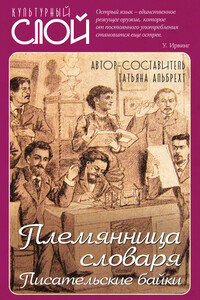
Предлагаемая вашему вниманию книга – сборник историй, шуток, анекдотов, авторами и героями которых стали знаменитые писатели и поэты от древних времен до наших дней. Составители не претендуют, что собрали все истории. Это решительно невозможно – их больше, чем бумаги, на которой их можно было бы издать. Не смеем мы утверждать и то, что все, что собрано здесь – правда или произошло именно так, как об этом рассказано. Многие истории и анекдоты «с бородой» читатель наверняка слышал или читал в других вариациях и даже с другими героями.
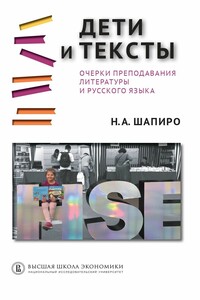
Книга посвящена изучению словесности в школе и основана на личном педагогическом опыте автора. В ней представлены наблюдения и размышления о том, как дети читают стихи и прозу, конкретные методические разработки, рассказы о реальных уроках и о том, как можно заниматься с детьми литературой во внеурочное время. Один раздел посвящен тому, как учить школьников создавать собственные тексты. Издание адресовано прежде всего учителям русского языка и литературы и студентам педагогических вузов, но может быть интересно также родителям школьников и всем любителям словесности. В формате PDF A4 сохранен издательский макет.
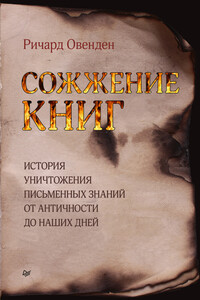
На протяжении всей своей истории люди не только создавали книги, но и уничтожали их. Полная история уничтожения письменных знаний от Античности до наших дней – в глубоком исследовании британского литературоведа и библиотекаря Ричарда Овендена.
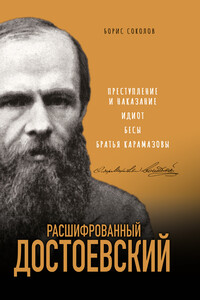
Книга известного литературоведа, доктора филологических наук Бориса Соколова раскрывает тайны четырех самых великих романов Федора Достоевского – «Преступление и наказание», «Идиот», «Бесы» и «Братья Карамазовы». По всем этим книгам не раз снимались художественные фильмы и сериалы, многие из которых вошли в сокровищницу мирового киноискусства, они с успехом инсценировались во многих театрах мира. Каково было истинное происхождение рода Достоевских? Каким был путь Достоевского к Богу и как это отразилось в его романах? Как личные душевные переживания писателя отразились в его произведениях? Кто был прототипами революционных «бесов»? Что роднит Николая Ставрогина с былинным богатырем? Каким образом повлиял на Достоевского скандально известный маркиз де Сад? Какая поэма послужила источником знаменитой легенды о «Великом инквизиторе»? Какой должна была быть судьба героев «Братьев Карамазовых» в так и ненаписанном Федором Михайловичем втором томе романа? На эти и другие вопросы о жизни и творчестве Достоевского читатель найдет ответы в этой книге.
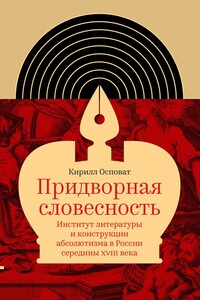
Институт литературы в России начал складываться в царствование Елизаветы Петровны (1741–1761). Его становление было тесно связано с практиками придворного патронажа – расцвет словесности считался важным признаком процветающего монархического государства. Развивая работы литературоведов, изучавших связи русской словесности XVIII века и государственности, К. Осповат ставит теоретический вопрос о взаимодействии между поэтикой и политикой, между литературной формой, писательской деятельностью и абсолютистской моделью общества.

В книге рассказывается история главного героя, который сталкивается с различными проблемами и препятствиями на протяжении всего своего путешествия. По пути он встречает множество второстепенных персонажей, которые играют важные роли в истории. Благодаря опыту главного героя книга исследует такие темы, как любовь, потеря, надежда и стойкость. По мере того, как главный герой преодолевает свои трудности, он усваивает ценные уроки жизни и растет как личность.